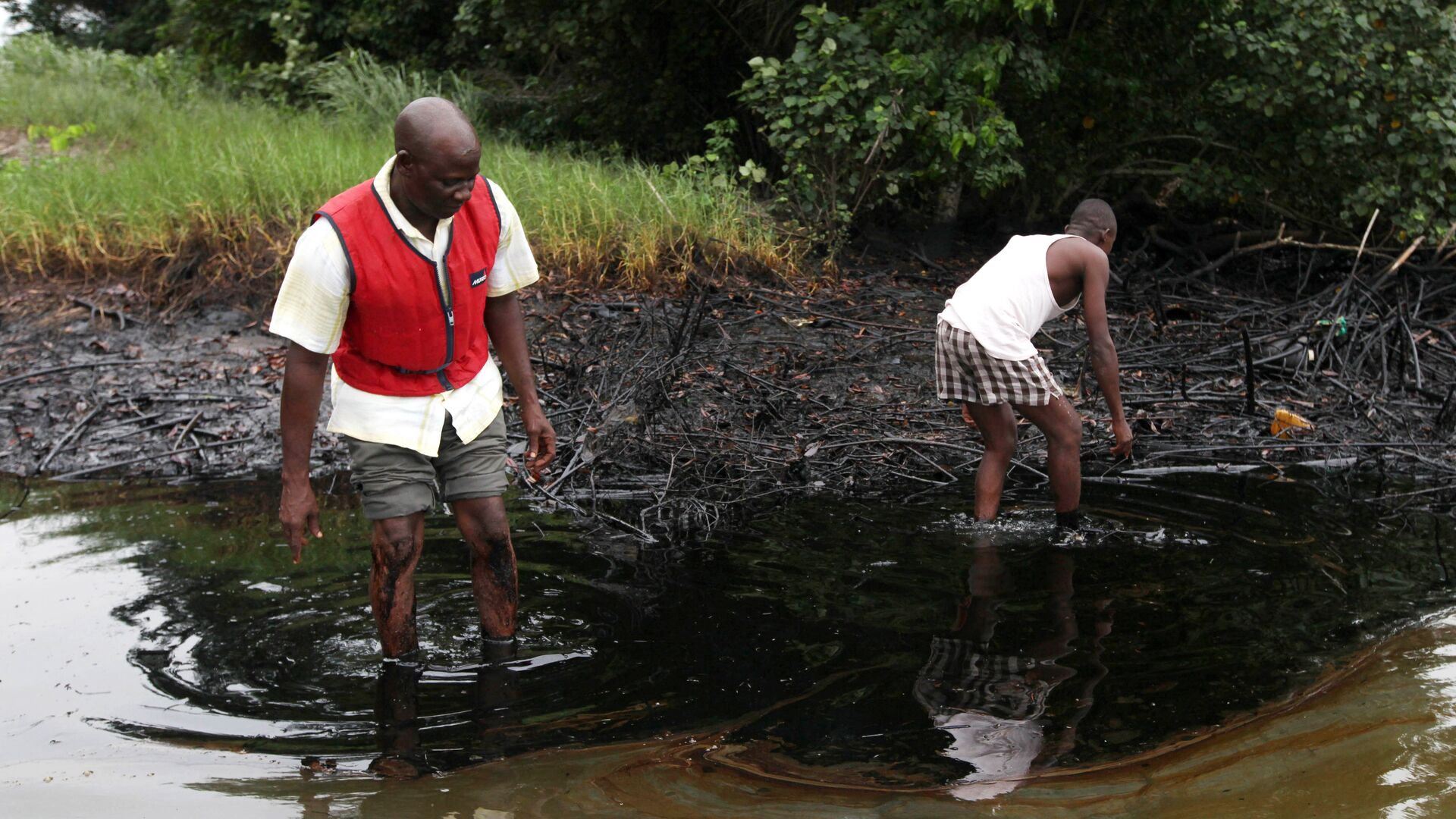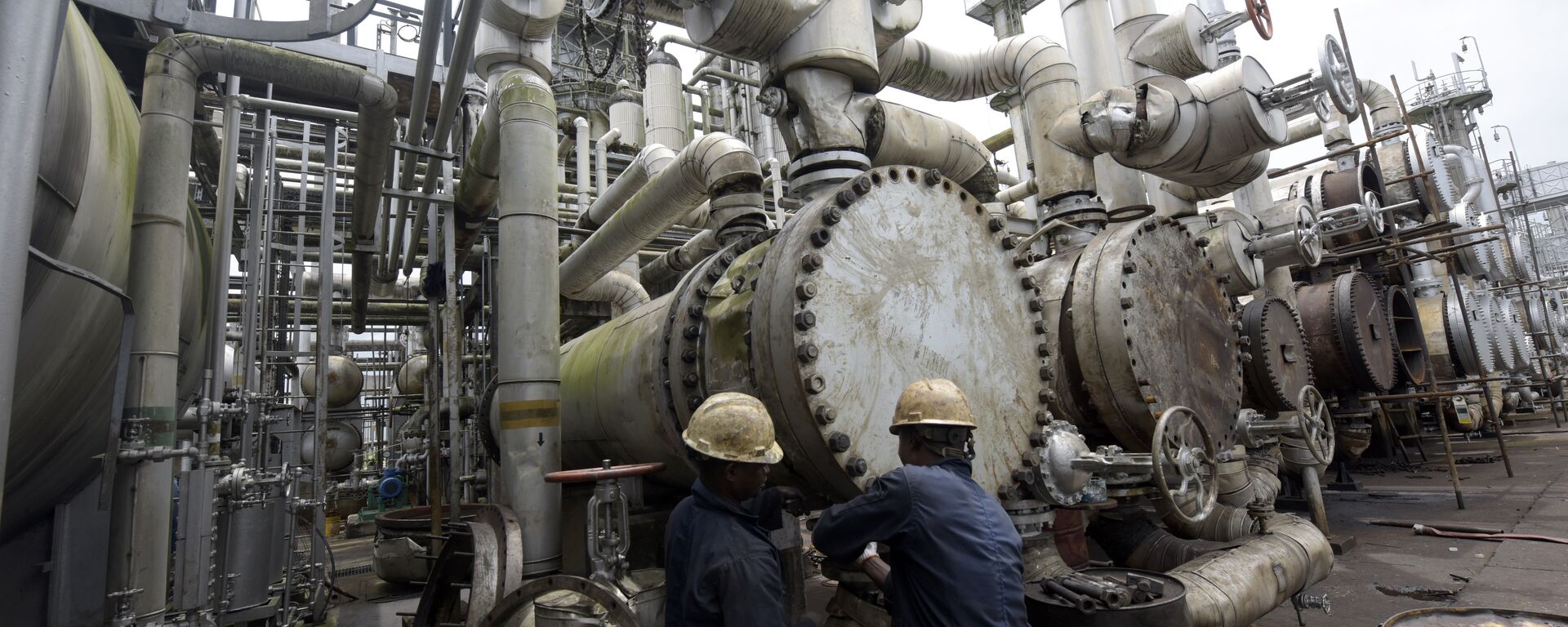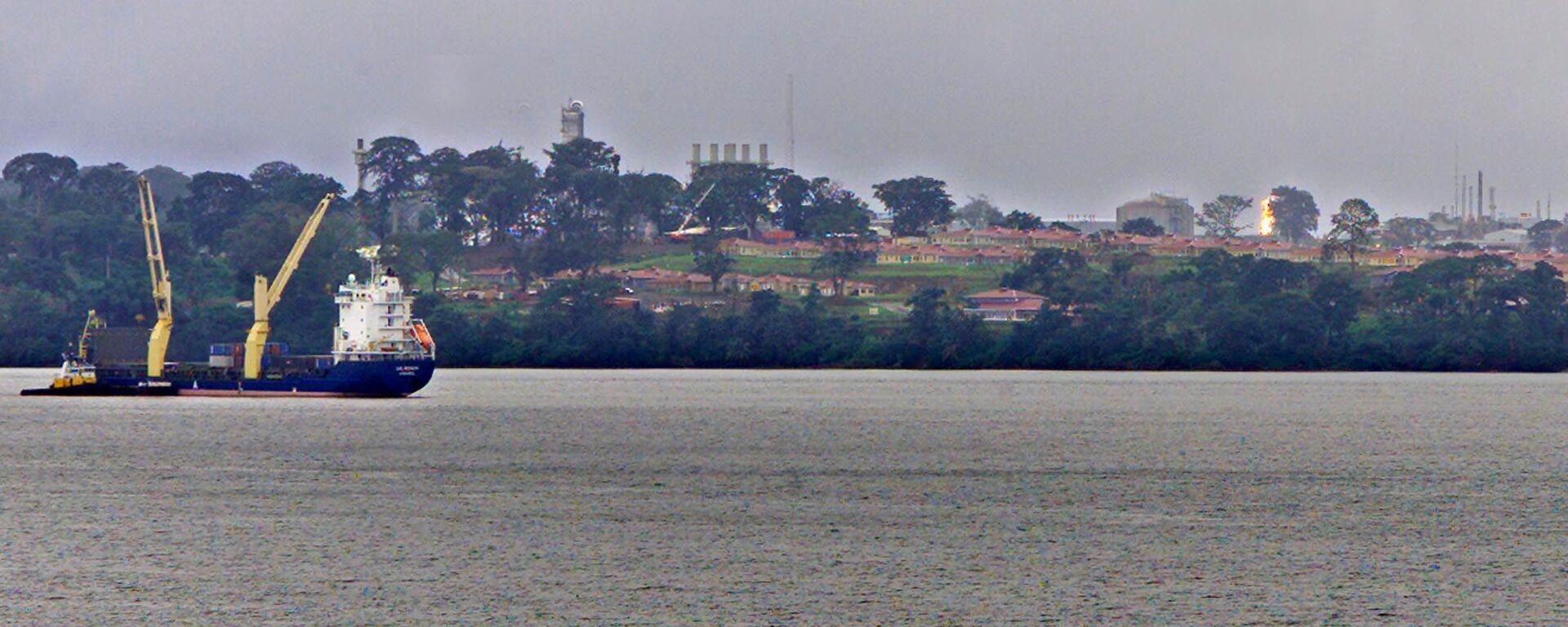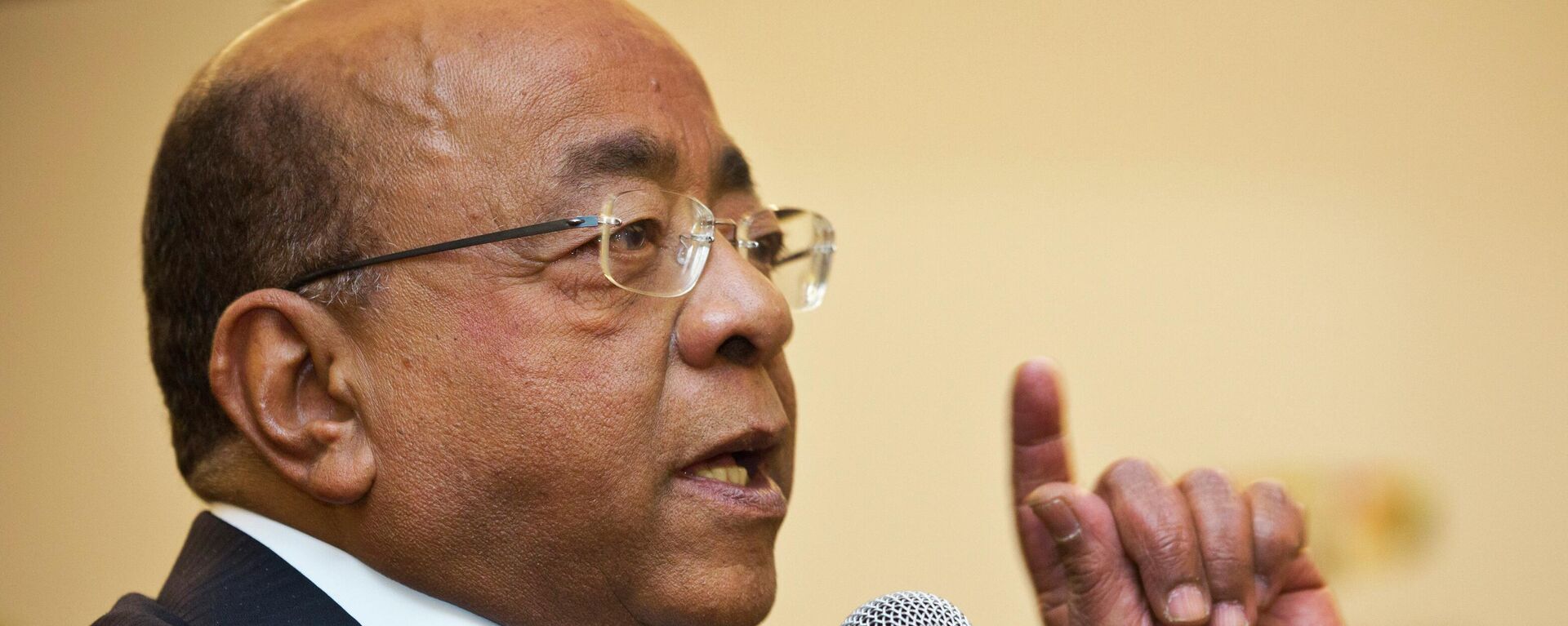Why Western Countries Are Interested in Maintaining Energy Poverty in Africa
07:45 GMT 05.10.2022 (Updated: 11:36 GMT 23.11.2022)

© AP Photo / Sunday Alamba
Subscribe
Sudanese-British billionaire Mo Ibrahim criticized the West on Monday for obstructing African nations' effort to develop their own hydrocarbon reserves and constantly ignoring the energy poverty problems of the Global South. What’s behind the Global North's political short-sightedness and who benefits from the controversy?
Even though Africa boasts roughly 12% and 9% of the world’s oil and natural gas reserves, respectively, most of the continent's nations suffer from energy poverty. However, once the energy crisis hit Europe, EU governments immediately turned to the African continent, seeking to tap its resources while overlooking the continent's longstanding problems.
"The West’s exploitation of Africa’s wealth is driven by two factors," explained Dr. Mamdouh G. Salameh, an international oil economist and a global energy expert. "The first is the old racist view that African people are backward and inferior to Western people and therefore can’t defend themselves or protect their natural resources. In a nutshell, it is doable. The second factor is greed and profit, which are the core of the Western capitalist system of taking advantage of poor and helpless people and exploiting their resources without letting them benefit the slightest from their stolen resources. That is how Western empires were built in Africa and around the world in the 19th and 20th centuries."
The Central African Countries suffer from severe energy poverty because they neither have the infrastructure (refineries, oil and gas pipelines) to benefit from their vast energy resources and also distribute energy, nor do they have the financial means to build such infrastructure, according to the oil economist. The deplorable state of Africa's energy infrastructure stems from the fact that the West is by no means interested in the continent's sustainability, Salameh highlighted.
"The ultimate beneficiary from Africa’s energy poverty, particularly refined products, is Western oil companies," the energy expert said.
One glaring example is the 4,128 km-long Trans-Saharan gas pipeline. It is supposed to link Nigeria to Algeria, passing through Niger and bring Nigerian and Algerian gas exports to Europe while simultaneously benefiting energy-poor African countries from Nigeria’s and Algeria’s plentiful gas reserves estimated at 206.53 trillion cubic feet (tcf) and 159 tcf respectively, the oil economist explained.
Although this pipeline was conceived in the 1970s, it is still at the drawing board stage despite many memorandums of understanding signed over the years, the latest in mid-February, Salameh pointed out, forecasting that "it won’t see the light of day even in the next 10 years."
"Western countries have consistently ignored Africa’s energy resources for years declining to offer investments as long as they didn’t need these resources at the time," he said. "But in the aftermath of the Ukraine conflict and having introduced sweeping sanctions against Russia, the European Union is trying to curry favor with African hydrocarbon producers to reduce its dependence on Russia’s gas and oil supplies."
Africa's Fossil Fuels & Climate Agenda
The unfolding energy crisis offers new opportunities for Africa to develop oil and gas infrastructure and step up production of hydrocarbons. However, while African business leaders and policy-makers are brushing off the dust from their long-delayed energy projects, Western politicians and environmentalists have raised concerns about climate change issues, insisting that Africa's consumption of fossil fuels could make matters far worse.
"The West puts so much importance on the climate change agenda in Africa," said Salameh. "I would hazard two explanations for the West’s attitude. The first explanation is that the West is under the misjudged and erroneous view that any future energy assets - like investing in oil and gas production and building pipelines will end up after 2030 as stranded assets. The second explanation is a more sinister one, with the West wishing to keep African energy resources underground in order to satisfy its own appetite for energy in the future."
Last month, US climate czar John Kerry discouraged investors from funding long-term gas projects in Africa, warning that they would be unable to recoup their investments beyond 2030. According to Kerry, it will be important to capture the emissions from gas after 2030, as the world is set to reach net-zero emissions in 2050.
On October 3, Sudanese-British billionaire Mo Ibrahim lambasted the West for hypocrisy and a double-standard approach at the "Reuters impact" conference in London. Ibrahim drew attention to the fact that the "Global North" is preventing African nations from developing their own gas reserves over climate change fears, while at the same time seeking opportunities to gain from African resources themselves.
This is not the first time that Ibrahim has lambasted Western policy-makers over their Africa policies. In July 2022, the billionaire's foundation released "The road to COP27: Making Africa’s case in the global climate debate," dedicated to the forthcoming 2022 United Nations Climate Change Conference in Egypt scheduled for November, 6-18. The report highlighted that "the current climate agenda is failing Africa" and placed the emphasis on the continent's people's right to energy access, given that a staggering 600 million Africans are still lacking it.
"The green agenda is hampering African countries from fully tapping and exploiting their hydrocarbon resources," said Salameh. "This is a double-edged approach in that it enhances energy poverty in Africa while simultaneously depriving the EU of Africa’s energy resources (…) If African countries don’t have the infrastructure, the technical know-how and the financial resources to benefit from their own vast hydrocarbon resources, how would anyone expect them to develop green energy?"
Meanwhile, the Western green agenda for Africa is "faulty," according to the energy expert: Africa accounted for only 3.8% of the world’s emissions of carbon dioxide (CO2) from fossil fuels and industry in 2020, which is the smallest share among all world regions.
On the other hand, climate groups who call for an abrupt end to fossil fuels and a sudden adoption of renewable energy fail to recognize the obvious lack of logic in this, continued Salameh.
"On their own, renewables aren’t capable of satisfying global demand for electricity and energy because of their intermittent nature," the oil economist explained, characterizing a total energy transition as an "illusion."
The current energy crisis in Europe clearly indicated that the Old Continent can't rely on renewables alone. Furthermore, EU member states had to restart their coal plants after resorting to an anti-Russia energy embargo over the latter's special military operation in Ukraine.
"While denying Africa's right to push ahead with its own energy endeavors, the West would be eager to offer investments and technological know-how to the continent in exchange for receiving the lion's share of the regional hydrocarbon wealth. The West doesn’t care whether African countries are experiencing severe energy poverty or not as long as it gets its hands on these reserves," Salameh concluded.




